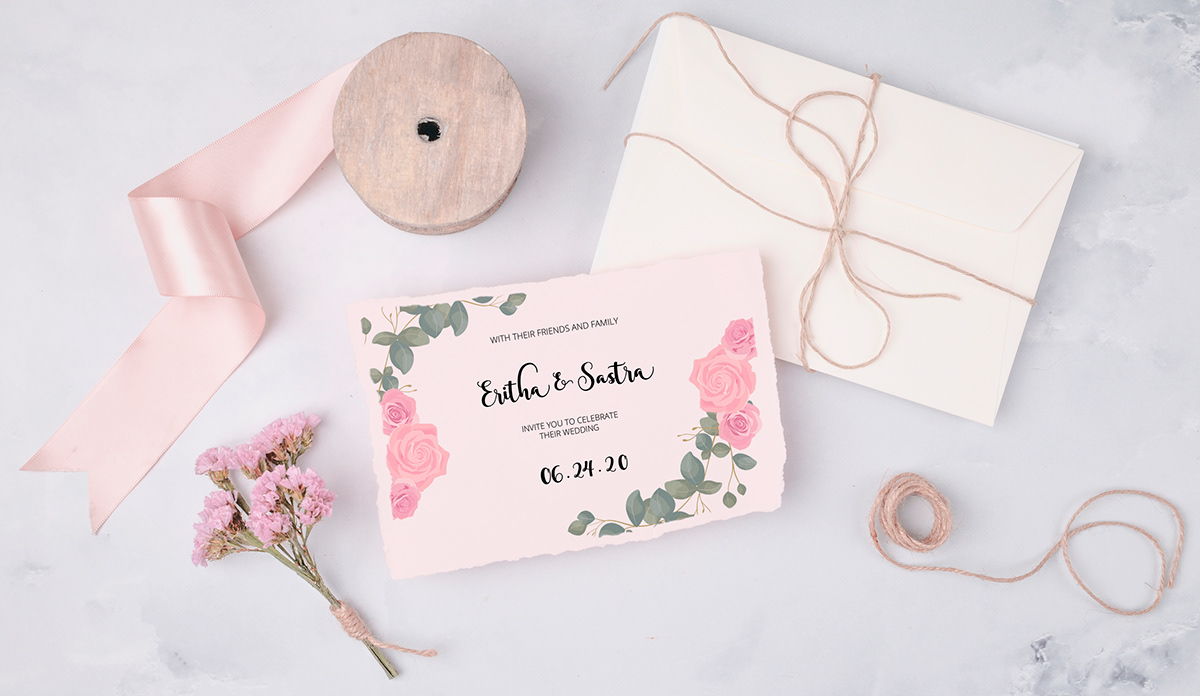Planning a wedding is exciting, but it also comes with a lot of details to organise—especially when it comes to your invitations. Your wedding invitations should be clear, informative, and beautifully designed, but most importantly, they should give guests everything they need to know to avoid any confusion.
If crucial information is missing, you might end up with guests arriving at the wrong venue, showing up in the wrong attire, or struggling to find a place to park. To save yourself from endless phone calls and last-minute texts, here’s exactly what to include on your wedding invitations to keep everything smooth and stress-free.
Essential Details Every Wedding Invitation Should Have
Some details are non-negotiable when it comes to your wedding invitations. Here’s what absolutely needs to be there:
- The Names of the Couple
This might seem obvious, but it’s worth mentioning—after all, you want your guests to know whose wedding they’re attending! Traditionally, the names of the couple are written in full, especially for formal weddings, but if you’re opting for a more casual invite, first names can work just fine.
- Date and Time
Make sure the date is crystal clear and not open to misinterpretation (especially if you have guests coming from abroad who may read the date differently). Always include the day of the week, the full date, and the exact time of the ceremony. If your reception starts at a later time, include that too. Take a look at this guide on the perfect time to send wedding invitations.
- Venue Details
Your wedding venue should be listed with the full address, including the postcode, to help guests find it easily. If the ceremony and reception are in different locations, be sure to mention both, along with any time gaps between them.
- Dress Code (If Applicable)
If you have a specific dress code—whether it’s black-tie, cocktail, or something more relaxed—be sure to mention it on the invitation. Guests appreciate the guidance, and it helps avoid those awkward moments when someone feels over- or underdressed.
- RSVP Information
To make your planning easier, clearly state how guests should RSVP and by what date. Whether you’re asking them to respond via post, email, or a wedding website, provide the necessary details and a deadline.
Extra Information That Prevents Guest Confusion
While the essentials cover the basics, adding these details will ensure your guests have a seamless experience:
- Reception Details
If your reception is in a different location from your ceremony, include the venue name, address, and start time. You can also mention whether there will be a cocktail hour before the main event.
- Plus-One and Children Policy
If you’re having a small or adults-only wedding, it’s important to make this clear in a polite way. You can phrase it subtly, such as: “We kindly ask that this celebration be adults-only.” Or, if plus-ones are limited: “We have reserved a seat for you. Please let us know if you are attending.”
- Accommodation Suggestions
For out-of-town guests, it’s helpful to include accommodation recommendations. You might mention nearby hotels or any special rates you’ve secured for guests.
- Transport and Parking Information
If parking is limited or guests need to use specific transport options, let them know in advance. Mention whether parking is available on-site, if a shuttle service is provided, or if they should plan to use taxis or ride-sharing services.
- Gift Preferences
If you have a gift registry, provide the link or details. If you’d prefer money towards your honeymoon or a charity donation instead of traditional gifts, a short note will guide guests in the right direction.
How Long Should You Give People to Reply to a Wedding Invitation?
Most people are excited to send out their wedding invitations. They’ve spent time designing them and choosing who their guests are going to be. Then, they sent them out in advance. Now, you have to wait to see who will RSVP. But, how long should you wait until you decide on the final number?
Know that there are some couples that will set an RSVP deadline. This means that on the invitation, they’re going to state when the guest has to respond to their invitation. This can be a good way to encourage guests to get back to you quickly. What’s more, if it’s past this date, you can finalise who won’t be coming.
Once it’s past the RSVP deadline, you can also decide that you want to follow up with those guests who haven’t responded. Sometimes, they can have good reasons why they have not answered you. perhaps they’ve been sick or out of the country. Either way, you can call them or send a text to see if they’re coming or not.
In general, you should give guests around one month to six weeks to respond. This should be around two to four weeks before the wedding date. This is plenty of time for people to check their schedules or book time off for the occasion.
Final Thoughts
Your wedding invitation should be as clear and informative as possible while still reflecting your personal style. By including all the essential details—and avoiding unnecessary clutter—you can ensure your guests arrive on time, dressed appropriately, and with no confusion.
To make things even easier, consider setting up a wedding website where guests can find extra details. That way, your invitations stay elegant and simple while still providing all the information they need.
